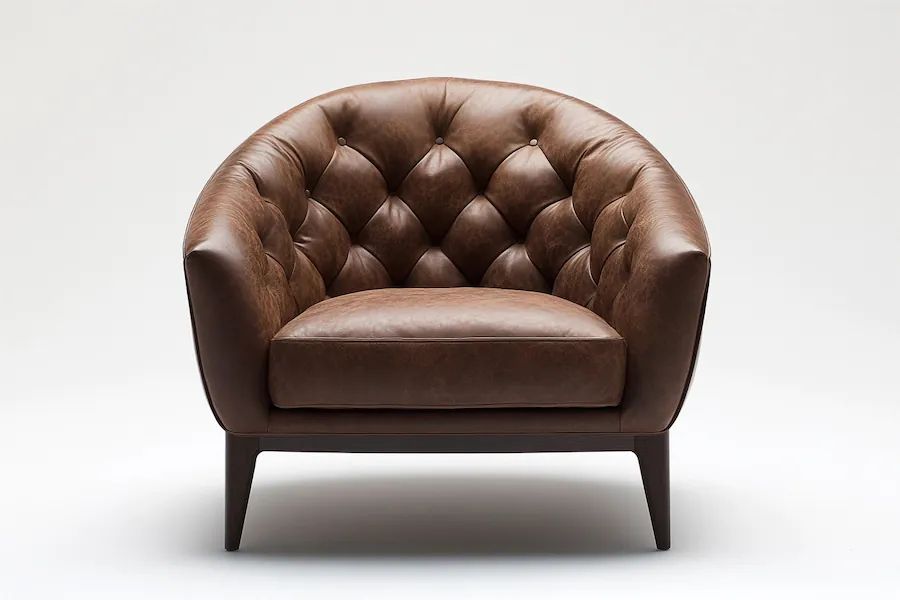The club chair, renowned for its deep seat and plush comfort, has been a staple in interior design since its inception in early 20th-century France. This article explores its history, key features, applications, considerations for selection, and enduring appeal.
History and Origins of Club Chairs
Originating in France, the club chair was initially known as the fauteuil confortable, or ‘comfortable armchair’, distinguishing it from less enveloping styles of the time. Its name, “club chair,” is believed to reference the gentlemen’s clubs where such chairs were prevalent. The design evolved throughout the 19th and 20th centuries, incorporating innovations like coil springs for enhanced comfort. Post-World War II, American influences introduced elements reminiscent of airplane fuselages and leather bomber jackets, further shaping its iconic appearance.
Key Features of Club Chairs
Club chairs are distinguished by several hallmark characteristics:
- Deep, Wide Seat: Offers exceptional comfort for extended seating.
- Low Backrest and Armrests: Provides a relaxed seating posture.
- Leather Upholstery: Traditionally covered in high-quality leather, developing a unique patina over time.
- Sturdy Frame: Constructed with durable materials to ensure longevity.
- Distinctive Back Shapes: Variations include round, chapeau de gendarme, square, cloud, and moustache backs, each lending a unique aesthetic.
Applications of Club Chairs
Club chairs are versatile and enhance various settings:
- Living Rooms: Serve as statement pieces offering both style and comfort.
- Studies and Offices: Provide a comfortable seating option for reading or work.
- Bedrooms: Create cozy nooks for relaxation.
- Commercial Spaces: Feature in hotels, lounges, and clubs to evoke a sense of luxury and comfort.
Considerations When Choosing a Club Chair
When selecting a club chair, consider the following factors:
- Comfort: Ensure the chair’s dimensions and cushioning meet your comfort preferences.
- Material Quality: Opt for high-quality leather or fabric that offers durability and develops character over time.
- Design Aesthetics: Choose a style that complements your existing décor, considering the shape of the backrest and overall design.
- Space Availability: Measure your space to accommodate the chair’s size appropriately.
- Historical Authenticity: For vintage enthusiasts, consider chairs with traditional features like sheep’s leather and classic back shapes.
Conclusion
The club chair’s evolution from the French fauteuil confortable to a global symbol of comfort and style underscores its timeless appeal. Its distinctive design and luxurious comfort continue to make it a favored choice in both residential and commercial interiors.
